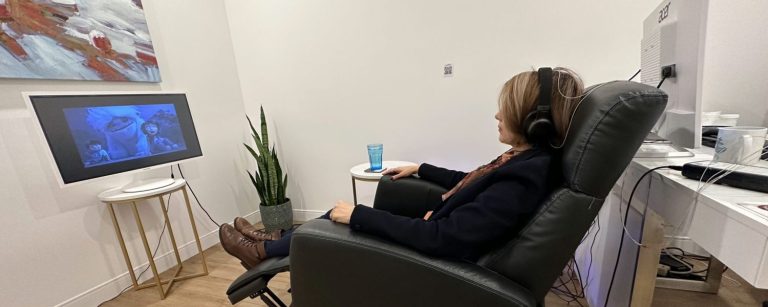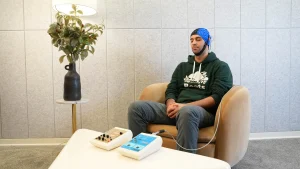For someone having a substance abuse problem, recognizing it is hard. At its core, it leads to the abnormal functioning of the brain. Exposure to trauma and negative responses over time creates faulty patterns. It is common to rely on substances when trying to escape severe trauma as it is an escape from reality. As the brain is a muscle, faulty behaviors are also learned, and new neural pathways (shortcuts) are built. This makes it more natural and easier to subscribe to these newly formed patterns over time. ( Self Weaning )
Self Weaning: Identifying the problem and self-help
Substance abuse over time drains one’s energy but in the short-term releases dopamine, the happy hormone. This activates pleasure and reward that, in turn, becomes motivation to keep using substances because of the way it makes one feel. A craving for this feeling develops over time.
Here are some questions you can ask yourself. A simple yes or no will help you identify if you have a substance abuse problem or not.
- Have your many attempts to stop your use of substances not worked out?
- Do you find it difficult to concentrate on tasks after the substances have worn off?
- Do you find yourself requiring more and more amounts of intoxicants to reach the same desired effects?
- Are you increasingly reliant on substances to make you feel normal?
- Do you prefer the substance and would choose it over other social interactions?
- Did substance use start off as a social activity and now become a personal treat/choice?
- Do you make more efforts to acquire the substances?
- Does acquiring substances and paying for them interfere with your ability to pay bills and other essential resources?
- Activities you once enjoyed, are they now replaced with time you spend alone and usually engaged in using this substance?
- Do you find triggers in your everyday environment that make you crave the use of this substance or make your escape from its usage?
- Do you have any physical reactions such as loss of appetite, irritability, headaches, drowsiness, chills or sweats, nausea, or other withdrawal from the substance?
A yes, to any question above says that there is a scope for improvement. Yes to multiple questions suggest that external intervention is essential.
Dealing with Denial
It is not uncommon for someone dealing with substance abuse to not accept the fact that it is a problem even after people repeatedly point it out. Over time, the substance is chosen over the interaction with these people, only leading to a further rabbit hole of consumption. If you are noticing changed behaviors and want to get out of them, you can start by making small changes that are significant to you, such as cleaning up or addressing one habit that you think could use the change.
The key is being consistent at one improvement versus attempting multiple things and reaching the same stage again. Substance use has a yoyo effect. It is very easy to find yourself in a position that you started out in over and over again. This gives you a sense of lack of progress, and for the effort, you’ve been putting in, even a sense of loss. In turn, discourages you from taking any actions and makes relapsing easier. A steady and timed reduction of substances is an option that one can regulate without much external help.
Asking for help
You may not want the sympathy and attention from your loved ones and may not want to involve them in the early stages of your recovery to skip the drama. Having your problem labeled or not won’t change its impacts, its reliance, the fact that it needs weaning off, and the fact that you need help and support. You may have to involve close ones later, especially if they were a cause or if ties were stressed.
Keeping them out of the process is justified if it helps you be involved in the process more wholly. Relying on another friend or person, however, to assist you may not be the right approach. Substance use and abuse are not easy themes to deal with, and it requires institutional intervention. Finding the right institution and help is much like finding a hobby. You can try it a couple of times and see if it is the right fit for you before committing. This process may take weeks, if not months. A place that makes you feel secure is important. Proximity, vibe, and affordability are some important factors when selecting an institution, clinic, or support group.
Neurofeedback: A solution
Unlike common approaches, neurofeedback is an evidence-based and non-invasive modality. In cases of substance abuse, the best way is to go through the process of weaning off that is required before getting into the treatment. One may even need medication to aid the situation and weaning off from substances as well while doing Neurofeedback. Before beginning with treatment, a brain map is done. This non-invasive mapping of your brain is able to suggest the areas that are changed by trauma and substance use. Neurofeedback is the process of rewiring your brain pathways. It is non-invasive and uses your responses to situations to create better neuroplasticity. Followed by Neurofeedback, the brain map is done again to assess the effectiveness of the treatment and substantiate the results of the treatment with evidence. It is recommended to do neurofeedback with counselling. At Elumind, we provide a compressive, supportive, and integrated environment for treatments allowing the marriage of neurofeedback and counselling all under one roof.
Recovery is a long, drawn process and requires many cogs in the wheel to support a person in this journey.

Elumind Centres for Brain Excellence is an integrated mental health centre offering solutions that can help you with your mental/brain health needs and Self weaning. To start your journey, book your FREE 15-MINUTE PHONE CONSULTATION. We are here for you.








